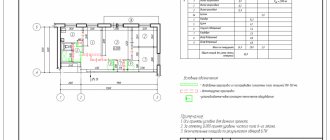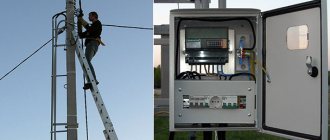Paying utility bills is the responsibility of every modern citizen, and therefore the current legislation describes in sufficient detail the rules in accordance with which this procedure should be carried out.
At the same time, the rules may change depending on what category the citizen himself belongs to and the housing in which he is permanently located and for which he pays utility bills.
Dear readers! The article talks about typical ways to resolve legal issues, but each case is individual. If you want to find out how to solve your particular problem , contact a consultant:
8 (800) 700 95 53
APPLICATIONS AND CALLS ARE ACCEPTED 24/7 and 7 days a week.
It's fast and FREE !
In this regard, in particular, it will be useful for many citizens to find out what utility payments in a private home are provided for by current legislation.
Normative base
Article 157 of the Housing Code specifies detailed rules in accordance with which payment for utility services must be made, and in particular, it states that this procedure must be carried out on the basis of a payment receipt received by the citizen. In this case, this payment documentation is drawn up in accordance with the actual volume of utility resources consumed or according to the tariff provided for a separate service.
Today, specialized metering devices are installed in every apartment building, and the total volume of services is established in accordance with their indicators. If there is no individual metering device in a certain premises and he pays for services in accordance with the norm, the amount will be established by current legislation.
The deadlines for paying utility bills are specified in Article 155 of the Housing Code. Thus, citizens as a standard must pay utility bills by the 10th day of the month that follows the billing month, or within the time frames stipulated in the contract drawn up with the utility service.
Saving on household appliances
Household appliances significantly increase energy consumption. Nowadays it is impossible to do without a refrigerator, washing machine, vacuum cleaner and other equipment. You can save money by choosing the right equipment and using it optimally.
Energy efficiency of equipment
High-quality household appliances are classified according to energy efficiency class. The most economical devices are those that are indexed A, A++, A+ . Equipment of class B can be considered quite efficient, but further (C and below) energy consumption increases significantly.
Energy-efficient appliances are more expensive, but the additional cost is recouped through energy savings.
Optimization of equipment operation
You can save energy by properly servicing household appliances, setting optimal modes, and reducing operating time. Some measures can be recommended.
For example, timely defrosting of the refrigerator and a tight fit of its door. The working surface of the electric stove retains heat for a long time, which allows you to turn off the device earlier. In particular, slow quenching for 6-8 minutes can be achieved using stored heat.
Using cookware made from materials that can heat up quickly ( copper, ceramics, glass ). At the same time, its capacity should not be increased unnecessarily; When preparing food or tea, water should be poured in the optimal volume.
It should be taken into account that every extra 1 liter of water “eats” more than 10 W of electricity. A vacuum cleaner clogged with dust consumes more electricity, which means timely cleaning will help save it.
It should be washed at the optimal setting. If it is recommended to wash the fabric at 30 ºС, do not heat the water to 50-60 ºС. Every degree of heating is extra wasted electricity. Noticeable savings can be achieved by reducing the temperature and spin . Most often, it is enough to set 400-600 rpm, and not run it “at full” (more than 1000 rpm).
Using preferential treatment
Electricity costs less after 24 hours, so it is worth running an automatic washing machine or dishwasher at night.
Installation of “smart home appliances”
Currently, there are various types of equipment on sale that can automatically set the optimal mode. This technique is expensive, but it allows you to minimize electricity consumption, which will definitely pay for itself in a short period of time.
Installation of motion sensors
These simple devices automatically turn on the lighting when entering a room and turn it off when leaving. You can reduce costs by installing a switch with a power regulator . If you do not need too bright light, then you can use it to reduce the power of the equipment.
If you use different ways to save energy consumption, the overall effect will be real. In this way, you can almost halve the amount of “payments” for electricity.
We recommend: How to build a beehive with your own hands?
Payment of utility bills in a private home
The list of responsibilities of each owner of a private home includes the need to pay for the utilities provided to him. This norm is spelled out in the provisions of Article 153 of the Housing Code, and therefore any attempts to evade paying for utility services constitute an offense. In this regard, appropriate sanctions may be applied to the owner of a private house, including, in particular, the imposition of penalties.
Article 153. Obligation to pay for residential premises and utilities
All family members of the property owner have similar responsibilities with him, as this is specified in Article 31 of the Housing Code. This norm is established in accordance with the instructions of Law No. 188-FZ, which was adopted on December 29, 2004.
The key condition in this case is the presence of officially registered registration on the territory of the house, that is, each of the family members must obtain a residence permit at the nearest territorial division of the migration service.
If we talk about the exact amount of utility bills, it will directly depend on the availability of installed metering devices. If they are absent, utilities will be paid in accordance with the number of citizens officially registered in this house.
In some situations, the place of permanent registration of people does not, in principle, coincide with their place of residence, and in such a situation, in fact, they pay double the amount for utilities. To avoid such injustice, current legislation provides citizens with the opportunity to submit an appropriate application for a refund.
What services are invoiced for?
All housing and communal services that are provided to citizens are designed to provide citizens with the most comfortable living conditions. Moreover, their use involves the need to make an appropriate payment, the amount of which directly depends on the established standards or the volume of resources consumed.
Companies that provide their clients with various types of utility services must compulsorily prepare and deliver payment documentation to their clients, which is commonly called receipts.
The standard payment deadlines in accordance with the provisions of Article 155 of the Housing Code are the 10th, after which a debt will appear, on which additional interest will begin to accrue over time for each overdue day.
Article 155. Payment for residential premises and utilities
How much and how to pay
The payment amount is established in accordance with general rules, based on the volume of utility services provided to the citizen. In this case, accounting is carried out using specialized equipment, which today can be installed on almost everything, including electricity, gas, water and heating. Thus, if no one is in the apartment for a certain period of time, you won’t have to pay anything either.
If there are no installed meters in the apartment, then in this case the calculation will be carried out in accordance with the consumption standards for each person established by the leadership of a certain region.
In other words, even if, in fact, utilities will not be used in principle, citizens will need to pay for them according to established standards, and ignoring this standard may ultimately lead to the fact that the initial amount of debt will increase, since appropriate penalties will be imposed on it. penalties and fines.
Consumption standards are established in accordance with the total number of citizens living in a certain territory. The fact of their direct residence will in no way affect the total amount of utility bills, unless the citizen demands from government agencies to recalculate them according to the rules provided for by current legislation.
In accordance with the current Rules, on the basis of which utility services are provided, calculations are carried out from the moment specified in the contract or application submitted by the owner. Payments can also be transferred in accordance with an act confirming the absence of individual metering devices in a certain apartment.
The right to draw up this document is granted to the performer, and he must fill it out in the presence of two persons who do not have their own interest. Any objections from the consumer may also be reflected in this act.
It is for this reason that it is recommended to study the monthly payment receipts as carefully as possible, because an increase in the amount of debt can ultimately lead to the fact that the provided utilities will be significantly limited, and subsequently the contract concluded between the property owner will also be completely terminated and the management company.
Benefits for utility bills for disabled people of group 1 are accrued if payments are received on time. Read here what the size of utility bills depends on.
How to reduce water costs?
Modern people consume huge amounts of water (cold and hot), which significantly affects utility costs. You can reduce these costs in the following ways:
- Installation of water meters. A simple example of the effectiveness of such a measure can be given. When 2 people live in an apartment, payment for water without a meter is 550-600 rubles/month. At the same time, with real, economical water consumption according to the meter, this amount can be reduced to 200-250 rubles/month. With the cost of the device being 4000-5000 rubles, the costs will pay off within 12-13 months.
- Timely repair of plumbing fixtures . A dripping faucet or leaking toilet can lead to a water leak of more than 100 liters per month. If repairs are carried out in a timely manner, then these unnecessary losses will not affect payments for housing and communal services.
- In many regions of the country there is a preferential nightly tariff for water consumption. After 24 hours, water is much cheaper, which is what you should use.
- Installation of modern plumbing . The lever tap for water opens it only when pressed, i.e. it will not flow “in vain.” Another saving option is a cistern with an economical drain button. By installing an aerator on the spout of the faucet, you can stop unnecessary splashing of the water stream, which significantly reduces water loss.
Significant consumption occurs when washing dishes. In this matter, you should think about purchasing a dishwasher . Thus, it has been found that it is more economical to wash dishes in a machine if there are 4 or more people in a family - 8 liters in the dishwasher versus 15 liters using the manual method. In addition, the machine can be turned on once a day and at night, when benefits apply.
Will housing and communal services become more expensive for residents of the private sector in 2020?
People living in the private sector will be required to pay for waste removal services. This standard will be specified in amendments made to the current legislation regulating the management of various household and other waste.
Today, garbage collection is a mandatory item on the payment receipt that is sent to residents of apartment buildings, while private sector owners are given the opportunity to formalize such an agreement at their own request.
At the moment, the issue of possible differentiation of tariffs provided for large settlements and villages is also being discussed.









